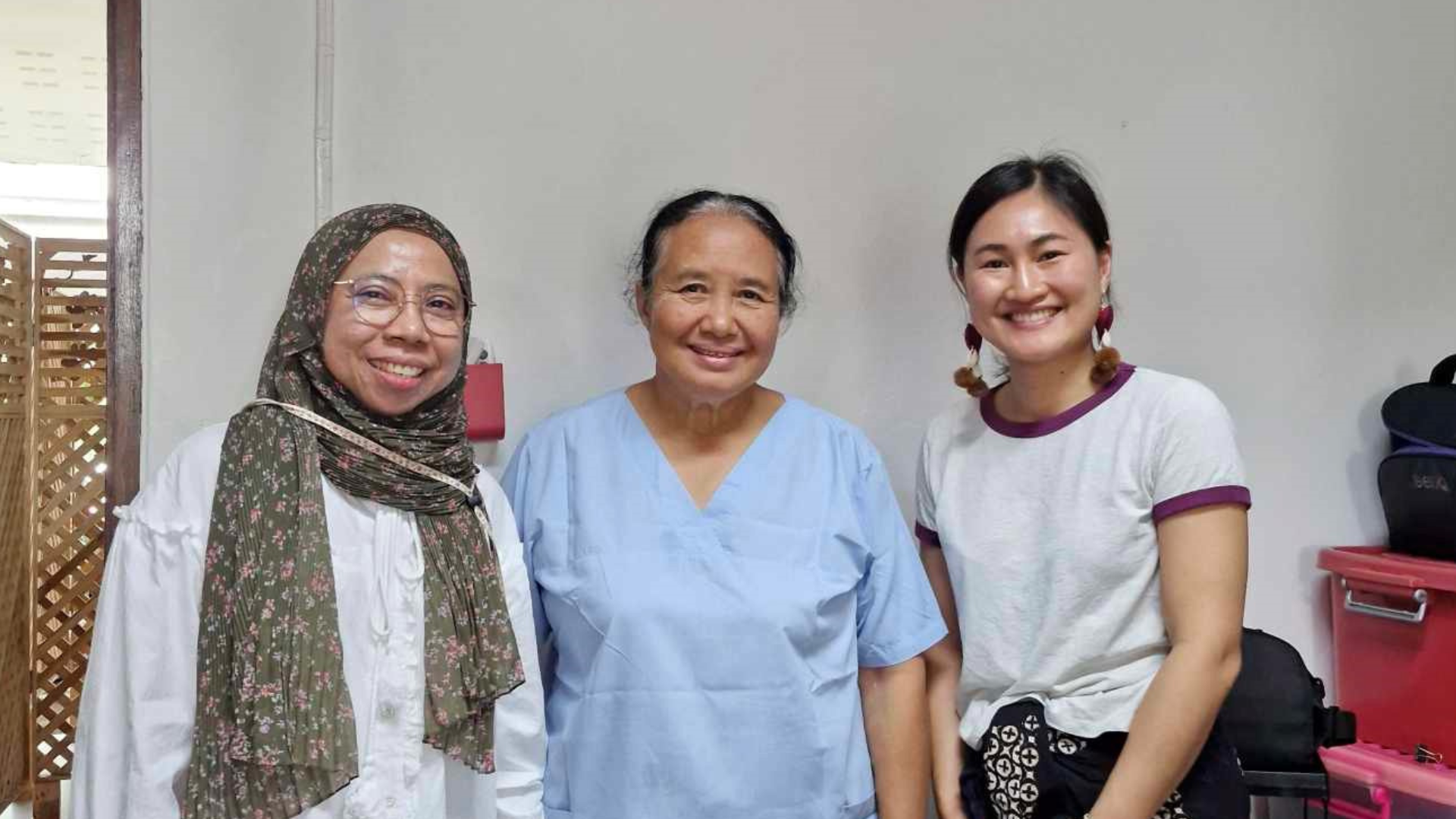Starting Point
Dr. Cynthia Maung, a displaced individual who fled Myanmar during the 1988 pro-democracy uprising, has dedicated nearly 30 years to providing healthcare, education, and protection to refugees affected by the civil war. She is a prominent figure in peacebuilding, focusing on forced displacement and the promotion of sustainable peace, particularly through the creation of the Mae Tao Clinic in Mae Sot.
Born in 1959 into a Karen family in Rangoon, Dr. Cynthia grew up in Moulmein. Despite disruptions in Myanmar’s education system, she completed medical school in 1980 and interned at Moulmein General Hospital. She later worked in clinics in Bassein and Eain Du Village, where she observed the dire conditions faced by the local people, including forced labor, heavy taxation, and inadequate healthcare. After the military seized power in September 1988, Dr. Cynthia and her colleagues fled through the jungle to the Thai-Myanmar border, offering medical care with limited supplies. Upon reaching Thailand, they worked at refugee camps near Mae Sot, where Dr. Cynthia connected with Karen leaders and local Thai authorities. In November 1988, she moved to Mae Sot and set up a shelter and medical referral center, which eventually evolved into the old Mae Tao Clinic.
The clinic addresses the healthcare needs and human rights of displaced communities through comprehensive programs and collaboration with local, national, international, and government organisations. Dr. Cynthia and her team work closely with community-based organisations in Thailand and Eastern Myanmar to improve healthcare services and develop the local health workforce, increasing access to essential healthcare, especially maternal and child health, in conflict and post-conflict areas. The clinic’s staff consists of approximately 700 members with diverse ages, ethnicities, backgrounds, and levels of experience, all dedicated to delivering healthcare services, education, and training.
Peace Journey
Mae Tao Clinic mainly served students and young people escaping conflict as well as migrant workers who arrived seeking employment along with their families soon followed. The clinic also serves a large number of children and adolescents who have dropped out of school and require a safe environment. As the population has changed, so have the medical needs, with reproductive health services now being one of the most requested services. Training sessions are conducted to develop skills in healthcare processes and medical services. Participants, patients, local Thais, the international community, and the Thai government are aware that this is a safe space promoting human rights and peaceful living.
Before our interview and observation, there were many patients of all ages at the clinics. A group of young boys with amputated legs from bomb blasts stood out as a different group of patients compared to 15 years ago when the researcher often encountered many women, especially those seeking reproductive health services.
In the peace process, although Dr. Cynthia was not invited or directly involved in formal negotiations, she shared that her work in assisting has had a significant impact in raising awareness and highlighting the effects of war. She emphasised that women, as well as people of all genders, can contribute to pushing the peace process forward. She often participates in discussions with working groups aiming to bring issues to the negotiation table. She understands the different tracks of the talks and the use of the Women, Peace, and Security (WPS) agenda as a central mechanism to drive the process. Dr. Cynthia proposed that tracks 1 and 1.5 require the collective effort and cooperation of various parties. She believes that ASEAN can play a central role in inviting conflicting parties to engage in dialogue and negotiations.
Success Stories
Dr. Cynthia, a leading advocate for human rights through medical treatment, has dedicated her efforts to ensuring that marginalised migrants and displaced people from Myanmar have access to essential services. Her work has earned her widespread recognition, including prestigious awards such as the Roux Prize in 2018, the Sydney Peace Prize in 2013, the National Endowment for Democracy Award in 2012, the Ramon Magsaysay Award in 2002, and the UNDP’s Untold Stories Award in 2018. She was also honored with an Honorary Doctorate in Medicine from Ubon Ratchathani University in Thailand and received the 2018 Human Rights Award from the Thailand National Human Rights Commission for her significant contributions to improving healthcare access for marginalised communities along the border.
As witness the issues for a long time, Dr. Cynthia sees Track 2 as an essential platform for leaders to propose informed solutions and communicate to foster informal interactions. These people act as a bridge, complementing the formal Track 1 processes, by facilitating informal exchanges between members or opposing groups. Mae Tao Clinic did not intend to be a formal negotiation space, but its actions, assistance, and recognition of the problems faced by people at various levels have turned it into an open space for discussions on peacebuilding. Through its work, the clinic has become a platform where issues related to peace and conflict can be openly addressed, creating opportunities for dialogue and collaboration across different groups and sectors. This can ensure that the voices of the people are heard and integrated into the broader peacebuilding process.
Dr. Cynthia stated that everyone recognises the hard work of track 3 as well as track 2, which highlights the importance of grassroots efforts and community involvement in the peace process. The efforts, though not always in the spotlight, contribute significantly to fostering understanding and cooperation among different groups. Track 3 work can pave the way for higher-level dialogue and negotiations, showing the real impact of community-driven peacebuilding. Still, the challenge is that women are often excluded from negotiations, and issues concerning women are viewed as less important.

